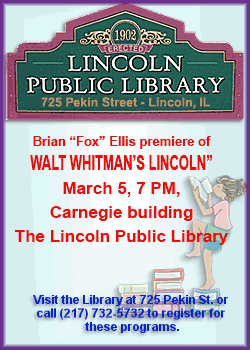|
'Terrorists, Tornados, and Tsunamis'
 Send a link to a friend
Send a link to a friend
[March 12, 2008]
"Terrorists, Tornados, and
Tsunamis: How to Prepare for Life's Danger Zones," by Lt. Col. John C. Orndorff
and Suzanne Harper, Abrams Books for Young Readers, 2007, 144 pages, ages 10 and
up
|
|
 Review by Review by
Louella Moreland
The first time I read the title of this book, I must confess I was taken
aback. Why do our children need to read a book about these horrible
subjects? Wouldn't such a book only add to the fears that our young people
face on the news every day? Then I began to read the reviews and think about
an old saying: We most fear what we do not understand. After reading the
book itself, I was impressed by the tone and format that the authors used to
educate and instruct while maintaining a style that warned without
terrorizing.
Since I grew up during the Cold War years, I can remember vividly how
frightened I was when, as schoolchildren, we practiced what to do if an atom
bomb was detonated. As an adult, I know that none of the procedures (such as
getting under our desks) would have been very effective. Bomb shelters that
were constructed in neighbors' basements were more a social status symbol
than a preparation for disaster. In my community, they did make great storm
shelters!

"Terrorists, Tornados, and Tsunamis" is a catchy title, but the book
includes subjects much closer to home for all children, such as staying safe
in your neighborhood, winter storms and floods. Each chapter gives a brief
background on each potential threat, but the majority of the text is spent
on how to prepare for and how to be safe during the episode. The writing is
concise, with illustrations and diagrams to clarify more difficult points.
Fact charts add a bit of historical information on some of the disasters to
help children comprehend the magnitude of the destruction that can take
place.
[to top of second column]
 |

The book is entertaining as well as informative. I would highly
recommend it to a young person or parent of a young person with
fears concerning the world around them. Perhaps this book will not
chase away all the fears a child might have regarding such
tremendous subjects, but reading it as a family would indeed give
everyone helpful tips on how to face such disasters with the tools
necessary to live through them. I would also recommend it as a
family project, to look at how well everyone in the family
understands the part they would play in a difficult situation.
We can never avoid all dangers in life, no matter how much we may
wish to protect children from such horrors. So why not give them the
knowledge they will need to understand the situations and prepare
for them when they can?
The book includes bibliography, index and related Web addresses.
To check out this book or others about keeping safe on the
playground or at school, come see us at the Lincoln Public Library,
725 Pekin St.
[Text from file received from
Louella Moreland, youth services librarian,
Lincoln Public Library District]

 |